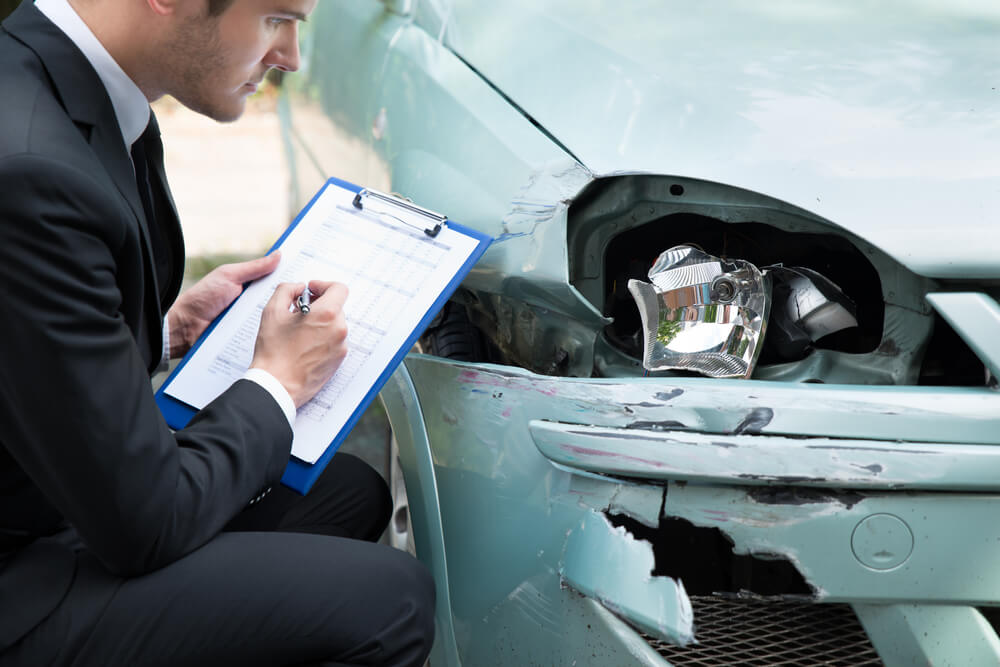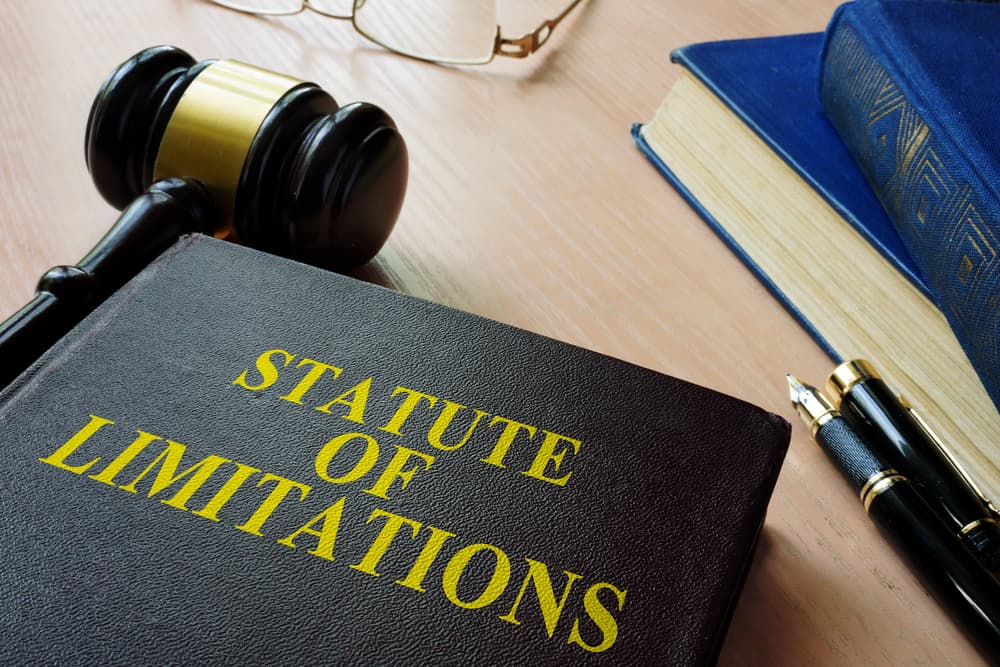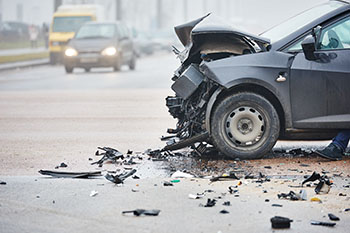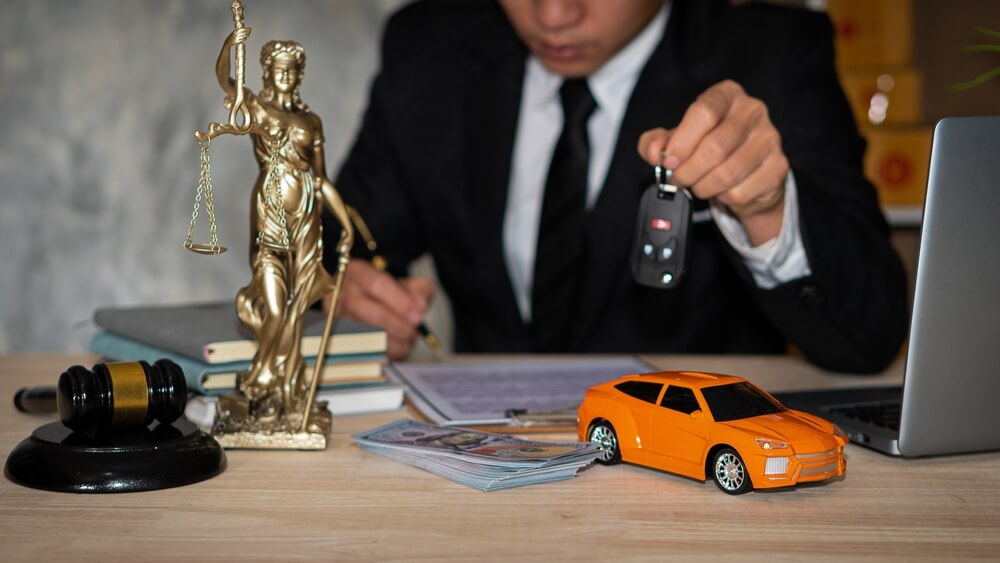You may be entitled to compensation in a car accident claim if another party causes an accident. Most states, including Nebraska, are fault states for auto accidents. This means the person found responsible for an accident is liable for paying damages to the other party, including property damage, medical expenses, lost earnings, and pain and suffering.
In everyday situations, once the accident victim signs the insurance company’s waiver of liability at the end of the claim, the matter is closed. However, you may wonder if your car accident claim can be reopened. We address this question below, but this is a complex question that a car accident lawyer should review with you. Speak to a car accident attorney in your area today for additional information.
What Is A Car Accident Claim?

A car accident claim in Nebraska is a formal request filed with an insurance company or pursued through legal channels to seek compensation for damages and injuries resulting from a motor vehicle collision. This claim typically involves the injured party (claimant) seeking financial recovery for medical expenses, property damage, lost income, pain and suffering, and other losses caused by the accident. In Nebraska, the process and requirements for filing a car accident claim are shaped by state laws, including its fault-based insurance system and specific statutes of limitations.
Is It Possible To Reopen A Car Accident Claim?
Reopening a car accident claim can be difficult, but it is not impossible. For example, reopening a previously closed car accident claim in Nebraska is generally difficult; however, it may be possible under specific circumstances.
Signing Release Of Liability Usually Finalizes Claim
A primary barrier to reopening a car accident claim in Nebraska is the signing of a release of liability. This legal document, often required by insurance companies when settling a claim, releases the at-fault party and their insurer from further liability.
Once signed, it effectively closes the claim, barring additional compensation for the same accident, even if new injuries or damages arise later. For this reason, it’s critical to consult an experienced car accident attorney before accepting a settlement offer to ensure it covers all current and potential future expenses. If you haven’t signed a release, the claim may still be open for negotiation, provided it falls within Nebraska’s statute of limitations. You should have a skilled car accident lawyer review the claim before you sign the release of liability document.
Statute Of Limitations Matters
Nebraska’s statute of limitations for car accident claims is four years from the date of the accident for personal injury and property damage claims and two years for wrongful death claims.

If a claim is closed but new evidence or damages are discovered within this timeframe, you may have grounds to pursue additional compensation, especially if no release was signed. For example, if injuries initially thought to be minor worsen over time, or if hidden vehicle damage is found, you can potentially negotiate with the insurer or file a lawsuit, assuming the statute hasn’t expired. Proving that these new damages are directly related to the original accident is essential. Retain an auto accident lawyer immediately to help collect strong evidence in your favor.
Multiple Liable Parties
Another scenario where a claim might be reopened involves cases with multiple at-fault parties. If you settled with one party but later discover that another party contributed to the accident, you can pursue a separate claim against the newly identified party.
It doesn’t technically reopen the original claim but allows you to seek additional compensation. However, settlement agreements sometimes include terms that waive rights to pursue claims against other parties, so a lawyer must review the contract to confirm your options.
Insurance Bad Faith
If you believe the insurance company acted in bad faith, such as misrepresenting settlement terms, overlooking evidence, or pressuring you into a quick settlement, you may have grounds to challenge the closure of the claim. Proving bad faith is challenging and requires strong legal support to demonstrate the insurer’s misconduct. Additionally, if the at-fault party fails to pay the agreed settlement, you can potentially reopen the case to enforce payment. Consulting a Nebraska car accident attorney is vital to evaluate whether these exceptions apply and to navigate the complex legal process.
Overall, reopening a closed car accident claim in Nebraska is rare due to signed releases and final settlements. However, exceptions exist if no release was signed, new damages or liable parties are discovered, or the insurer acted improperly. Given Nebraska’s four-year statute of limitations, acting quickly is vital to preserve your rights. Always work with a qualified car accident attorney to assess your case, avoid premature settlements, and maximize compensation for your losses.
How Else Can A Car Accident Lawyer Help Your Case?
Your car accident lawyer may assist if you want to reopen a car accident claim. Other ways they can help your case include:
Navigate Complex Laws
First, your car accident lawyer provides critical guidance through your state’s complex legal framework. Nebraska, for example, operates under a modified comparative negligence system, meaning your compensation can be reduced if you’re found partially at fault for the accident. Your car accident lawyer is a vital resource to ensure you are not blamed unfairly for the accident.
Determines Liability And Collects Evidence
A skilled car accident attorney evaluates the circumstances of your crash, gathers evidence like police reports, witness statements, and traffic camera footage, and builds a strong case to minimize your liability. They also ensure compliance with Nebraska’s statute of limitations, which requires filing a personal injury lawsuit within four years of the accident or a property damage claim within three years. Missing these deadlines can bar your claim entirely.
Negotiates With Insurance Companies
Next, your car accident lawyer handles negotiations with insurance companies, which often aim to minimize payouts. Insurers may offer quick settlements that undervalue your claim or pressure you into admitting fault. An attorney knows how to counter these tactics, accurately valuing your damages, medical bills, lost income, pain and suffering, and future care needs and advocating for a fair settlement. If negotiations fail, they can represent you in court, presenting a compelling case to a judge or jury.
Reduces Claim Stress
Finally, your auto accident lawyer alleviates the stress of managing a claim. Recovering from an accident is physically and emotionally taxing, and dealing with paperwork, legal deadlines, and adversarial parties can be overwhelming. Your attorney takes on these burdens, allowing you to focus on healing. Most Nebraska car accident lawyers work on a contingency fee basis, meaning you pay nothing upfront, and they only collect a fee if you win your case.
Who May Be Liable For Your Auto Accident Injuries?
Determining liability for auto accident injuries depends on the specific circumstances of the crash and the laws of the state where the accident occurred. Several parties may be held responsible, including drivers, vehicle owners, employers, manufacturers, or even government entities. Below is an explanation of potential liable parties and the factors that influence liability.
The Other Driver
The most common party held liable is another driver whose negligence caused the accident. Negligence may include actions like speeding, running a red light, texting while driving, or driving under the influence.
For example, if a driver fails to yield at an intersection and collides with your vehicle, they can be responsible for your injuries. In many states, the at-fault driver’s insurance covers damages, but liability must be proven through evidence like police reports, witness statements, or traffic camera footage. In “no-fault” states like Florida or Michigan, your own insurance may cover initial medical expenses regardless of who caused the accident. However, you can still pursue the other driver for severe injuries or damages exceeding your policy limits.
Vehicle Owners or Other Third Parties
If the at-fault driver was operating someone else’s vehicle, the vehicle owner might share liability, especially if they knowingly lent their car to an incompetent or reckless driver. Additionally, if the driver was working at the time of the accident (e.g., a delivery driver), the employer can be liable under “vicarious liability” principles. For example, a trucking company may be responsible if their driver causes a crash due to fatigue or improper training. In some states, parents of minor drivers may also be liable if their child causes an accident.
Manufacturers or Mechanics
Defective vehicle parts or improper repairs can lead to accidents, making manufacturers or mechanics liable. If a brake failure due to a faulty part causes a crash, the vehicle or component manufacturer can be held responsible under product liability laws. Similarly, a mechanic who negligently serviced your car, leading to an accident, might be liable. Proving this requires evidence like expert testimony or documentation of the defect or poor workmanship.
Government Entities
Poor road conditions, missing traffic signs, or malfunctioning traffic lights can contribute to accidents, potentially making a government entity liable. For instance, if a pothole causes you to lose control and crash, the city or state responsible for road maintenance might be at fault. However, suing government entities is complex due to sovereign immunity laws, which limit their liability, and strict deadlines for filing claims, such as the six-month limit in some states.
Multiple Parties and Complex Cases
In multi-vehicle accidents or chain-reaction crashes, several parties may share liability. Determining fault in these cases often requires the skill of accident reconstruction specialists, thorough investigations, and legal experience. Additionally, if you’re a pedestrian or cyclist injured in an auto accident, the driver is often presumed to be at fault, but it depends on the situation. Uninsured or underinsured drivers complicate matters, requiring you to rely on your own uninsured/underinsured motorist coverage if available.
To establish liability, evidence is critical, including police reports, medical records, photos of the scene, and witness testimony. Consulting an experienced car accident lawyer in your area will help you navigate the various aspects of your case effectively.
What Is Your Auto Accident Claim Worth?
It’s critical to understand what your car accident claim’s worth is. That way, you will receive enough compensation for your medical bills, lost earnings, property damage, and pain and suffering. Understanding your claim’s actual value ensures that you don’t settle for too little. If you do, reopening your case may be difficult; getting the most compensation for your losses from the start is best.
Several factors that will influence your claim’s value are:
Economic Damages

Economic damages form the foundation of most car crash claims. These include tangible costs, such as hospital bills, rehabilitation expenses, medication, and future medical care if injuries require ongoing treatment. Property damage, such as vehicle repair or replacement, also falls under this category. Additionally, suppose the accident prevents you from working. In that case, you can claim lost income, and if your injuries impact your future earning capacity, you may be entitled to compensation for diminished earning potential.
Calculating these requires documentation like medical records, repair estimates, and pay stubs. For example, if you incurred $10,000 in medical bills and missed $5,000 in income, your economic damages would start at $15,000, assuming no further costs.
Non-Economic Damages
Non-economic damages, like pain and suffering or emotional distress, are harder to quantify but can significantly increase your claim’s value. Nebraska courts consider the severity of your injuries, the duration of your recovery, and how the accident affects your daily life. For instance, a severe injury like a spinal cord fracture, which causes chronic pain or disability, typically warrants higher compensation than a minor whiplash injury.
There’s no fixed formula, but car accident attorneys often use methods like multiplying economic damages by a factor based on injury severity or applying a per diem rate for the duration of your suffering. These damages are subjective and heavily debated by insurance companies. Your car accident lawyer will always fight for the most compensation for your losses.
Contact A Car Accident Lawyer Today

Were you in a car accident caused by another party? You should talk to a car accident lawyer before taking a settlement because it’s difficult to reopen a claim. Your car accident lawyer will review your case to ensure you are fairly compensated for your injuries and property damage. Contact a skilled car accident attorney in your city today!